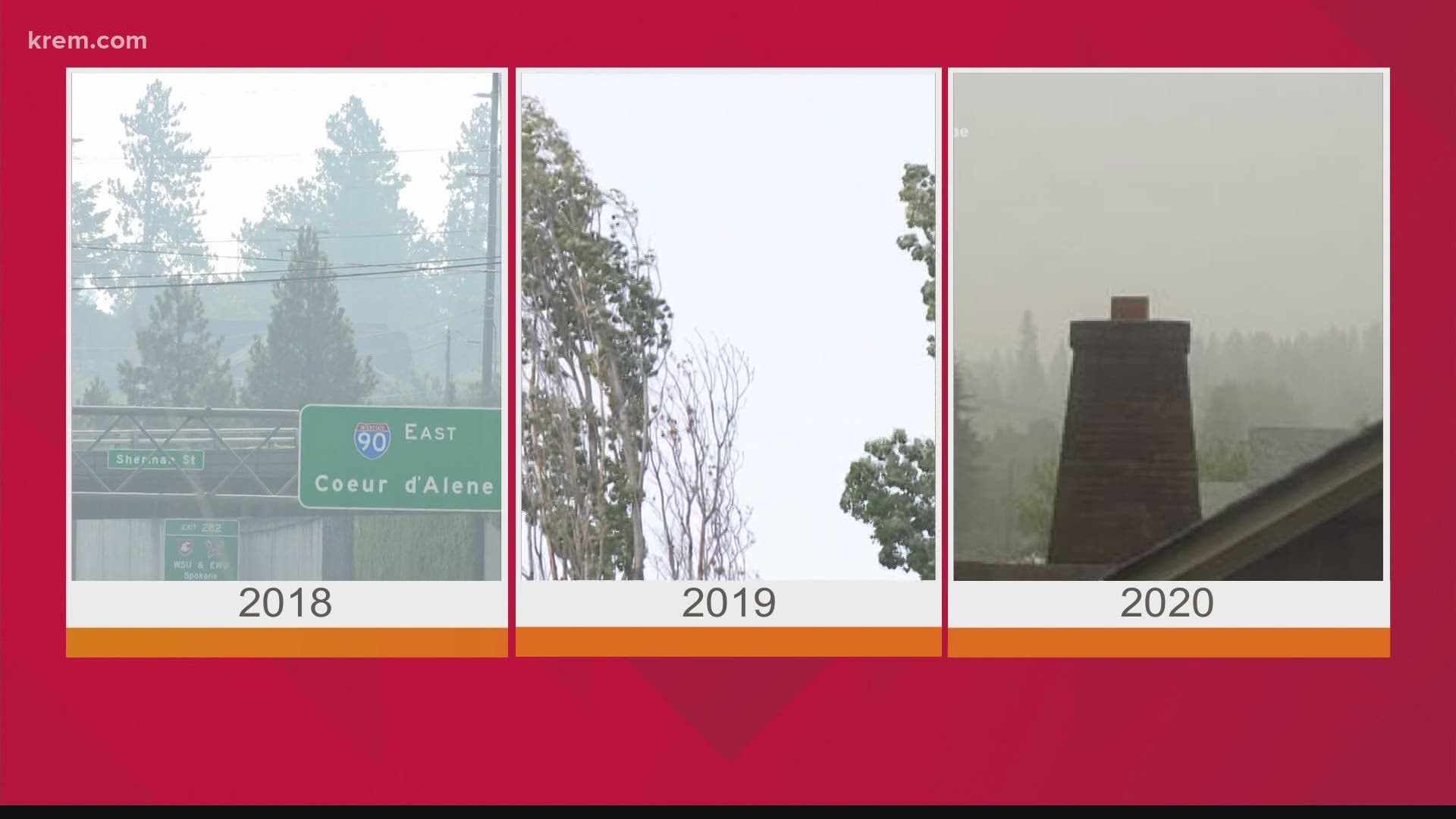SEATTLE — A Seattle skyline buried in smoke is becoming more common. The Washington State Department of Health (DOH) said three out of the last four years the state was hit with significant smoke events caused by wildfires.
Wildfire season typically runs from July through September. The Fire Weather Season Outlook by the National Weather Service shows this year's season will likely ramp up quickly and potentially last longer because of warm, dry weather. However, the DOH said it is difficult to predict smoke patterns.
"It's something that you need to actually, regularly be ready for and make sure you have your plan in place for the summer for when smoke hits," said Kaitlyn Kelly, MPH, air quality policy specialist for the DOH.
Kelly said her position focuses on educating the public about wildfire smoke. The position was created in 2019 as a result of smoke events becoming more prevalent in Washington state.
"The challenge with wildfire smoke, with wildfires, is the smoke can transport across," explained Kelly. "It has no state lines. So if there's really bad wildfires in Oregon, or California, Idaho, the smoke can blow over."
That's what happened in 2020. Wildfire smoke from California and Oregon hovered over western Washington. It turned the sky a deep orange and combined two public health disasters -- COVID-19 and smoke -- both target respiratory and immune systems.
"What we do know about COVID-19 and wildfire smoke is that if you have COVID-19, breathing in wildfire smoke may make your symptoms worse," said Kelly. "And if you are exposed to wildfire smoke, [it] might make you more susceptible to respiratory infections, likely including COVID-19."
Kelly said 2020 was unique because it was one of the longest durations of unhealthy air on record.
Now that more than 450,000 Washingtonians have tested positive for COVID-19, Kelly said the DOH is studying whether those with lasting COVID-19 symptoms are more sensitive to smoke. She said the department hopes to have guidance on what it's learned in the coming weeks.
The DOH said there are things people can do now to prepare for wildfire smoke, including learning about the air quality index and getting a HEPA filter or making an at-home box fan filter. The state launched a Washington Smoke Blog to help people prepare and learn about smoke events.
"Smoke is unhealthy for everyone, and it's not going away," said Kelly.

